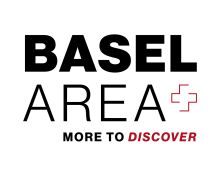
Three biotech startups working on new treatments for some of the world’s most challenging medical needs, including a dermatology disease affecting 58 million Americans each year, have made positive progress in their clinical journey. On the other hand, Asceneueron has discontinued its phase 2 clinical trial evaluating its drug candidate evaluating a treatment for Alzheimer’s Disease.
LimmaTech Biologics AG, a clinical-stage biotech company developing vaccines for the prevention of life-threatening diseases, launched the Phase 1 clinical trial (NCT06719219) in the U.S. after receiving a Fast Track designation from the U.S. Food and Drug Administration (FDA) in 2024. In February this year, the company announced the vaccination of the first participants in the Phase 1 study evaluating LBT-SA7, a drug candidate designed to prevent skin and soft tissue infections (SSTIs) caused by the bacterial pathogen Staphylococcus aureus (S. aureus). S. aureus infections pose a significant global health challenge, causing an estimated 1 million deaths annually, with 90% of all community-acquired S. aureus infections being SSTIs. LBT-SA7 is the first multivalent vaccine entirely based on secreted antigens to address this critical need. It contains weakened forms of the pathogen’s toxins, referred to as toxoids, designed to prevent infections by neutralizing the toxins secreted by S. aureus.
This first-in-human study aims to evaluate the safety and immunogenicity of LBT-SA7 against S. aureus. It is a randomized, double-blinded, and controlled dose-escalation study expected to enrol 130 healthy adults aged 18-50 years. Initial results are anticipated in the second half of 2025. The study is funded by the recently awarded US$6.5 million from the Combating Antibiotic-Resistant Bacteria Biopharmaceutical Accelerator (CARB-X).
First ever patient dosed with AlpE in combination with first-line TB Drugs
BioVersys, a clinical-stage company at the forefront of developing novel antibacterial products for serious life-threatening infections caused by multidrug-resistant (MDR) bacteria, has dosed the first patient in a pulmonary TB Phase 2 clinical trial, evaluating the early bactericidal activity (EBA) and safety of alpibectir-ethionamide (AlpE) in combination with first-line TB drugs for the first time. Alpibectir (also known as BVL-GSK098) is a small molecule developed from BioVersys’ Transcriptional Regulatory Inhibitory Compounds (TRIC) platform in a successful collaboration with GSK, the Institut Pasteur Lille and the University of Lille.
The study is being conducted under the European Union’s IMI2 UNITE4TB project, through which AlpE is being studied for the first time in a 14-day EBA clinical trial in combination with first-line TB drugs, marking a significant step forward in the further development of this unique combination. Through this Phase 2 TB drug combination trial, BioVersys and its partner GSK seek to get further insights into the potential impact of AlpE in TB patient’s treatments. Under the GSK-BioVersys collaboration agreement, GSK is responsible for developing AlpE for pulmonary indications and BioVersys is addressing TB meningitis (TBM), with BioVersys targeting the start of a TMB trial in H1-2026. This collaborative, two-pronged approach of BioVersys and GSK with their clinical trials partner TASK, aims to expedite the development of AlpE to TB patients.
Torqur AG publishes interim phase 2 study results
Torqur, has announced interim results for the ongoing Phase 2 clinical trial in Actinic keratosis, the most common pre-cancerous dermatological condition, affecting 58 million Americans each year. Primarily driven by an overactive PI3K pathway, early research suggests targeted therapy could hold promise for many patients. Torque’s topical bimiralisib, a selective pan-PI3K/mTOR inhibitor, has already demonstrated the potential to prevent or slow down the progression of subclinical AK lesions in pre-clinical studies. The phase 2 clinical study, which started in 2024, evaluates the safety and efficacy of bimiralisib, in patients with Actinic keratosis.
Key interim findings include:
- Efficacy: Bimiralisib topical gel (2%) demonstrated strong efficacy, with 60% of patients who completed the initial treatment and follow-up visit showing either complete or partial clearance of their lesions. Notably, 70% in the 4-week treatment group (Arm B, 17 patients) and 50% in the 2-week treatment group (Arm A, 18 patients) showed significant improvement, reinforcing its potential as an effective targeted therapy for Actinic keratosis.
- Safety: The safety profile indicates that bimiralisib topical gel (2%) was well tolerated, with treatment-related adverse events primarily being mild (Grade 1) and resolving quickly after treatment completion
The company is enrolling patients across two renowned dermatology centers in Switzerland.
Asceneuron discontinues Phase 2 trials
In July last year, Asceneuron obtained over $100 million to accelerate the development of its lead asset ASN51, an oral small molecule OGA inhibitor for the treatment of Alzheimer's disease and launch Phase 2 clinical trials. According to the latest updates, the company has made a strategic decision to discontinue the study. The trial, which kicked off in October 2024, was expected to run for two years.
The study (NCT06677203) aimed to evaluate two doses of ASN51 against a placebo in 123 patients with early Alzheimer’s, focusing on safety, tolerability, suicide severity assessment through the Columbia-Suicide Severity Rating Scale (C-SSRS), and tau protein levels in cerebrospinal fluid. Asceneuron had previously said that ASN51 could be a disease-modifying therapy, with applications beyond Alzheimer’s in diseases such as Parkinson’s and amyotrophic lateral sclerosis (ALS).
(Press release/RAN)


 The new Swiss Venture Capital Report was published on 26 January. It analyses 304 financing rounds closed in 2020 and includes further article such as an interview with Michael Hengartner, President of the ETH Board, and a list of Swiss "soonicorns".
The new Swiss Venture Capital Report was published on 26 January. It analyses 304 financing rounds closed in 2020 and includes further article such as an interview with Michael Hengartner, President of the ETH Board, and a list of Swiss "soonicorns". 




















































Please login or sign up to comment.
Commenting guidelines